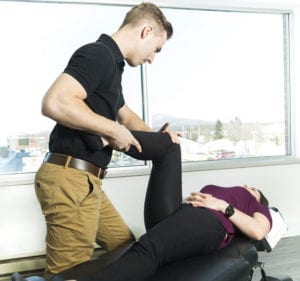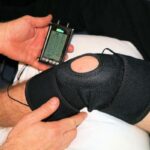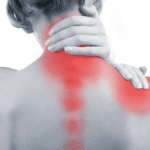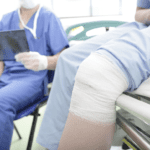Hip pain can severely impact your daily life. Surgery isn’t the only way to treat it.
The hip joint is the body’s largest ball and socket joint and it often fits together properly and without pain. When you use the hip, the cartilage that helps prevent friction moves around and can eventually wear down or becomes damaged. That’s when pain begins.
Causes of Hip Pain
Many conditions can cause hip pain. The most common is arthritis. The hip joint gets inflamed and cartilage breaks down. Arthritis can cause stiffness and reduced range of motion.
Fractures, bursitis, tendonitis, strains, and tears can also cause hip pain.
Think RICE
RICE can be the first thing to try to treat hip pain. RICE stands for rest, ice, compression, and elevation.
Avoiding the activities that cause pain is the rest part. Resting the hip for a couple of days and then slowly resuming the activity can help relieve the pain.
Icing the painful area can reduce inflammation. Icing for about 10 to 15 minutes several times a day can help with pain. Make sure you protect your skin, so you don’t irritate it.
Wrapping a thick bandage around the hip and pelvis can provide compression. Reclining with your feet up can help elevate the hip area, relieving the pressure and reducing the pain.
A warm bath or shower can also help, but not if bursitis is causing your pain. Heat can make that kind of inflammation worse.

Stretching and Exercising Can Help
Stretching your muscles around the hip after physical activity can help relieve pain. Exercising to increase the hip’s range of motion and strengthen the muscles that surround it can relieve pain. Just make sure you choose exercises that don’t cause more pain.
Low-impact exercises like swimming, water aerobics, and yoga can be good for strengthening the hip joint. Ask a trainer or physical therapist about which exercises are good for hips.
Don’t forget about strengthening the inner and outer thighs. These exercises help the areas that support your hips.
Medications for Hip Pain
Sometimes, doctors will recommend medications along with other treatment options. Over-the-counter pain medications like acetaminophen or a nonsteroidal anti-inflammatory drug like ibuprofen or naproxen can help relieve pain.
Corticosteroids act quickly and can control inflammation.
Before taking any kind of medication, make sure to talk with your doctor.
Non-surgical Treatments
Several types of injections can also help treat hip pain without surgery. Trigger point, epidural, and facet joint injections can help relieve pain.
Platelet Rich Plasma (PRP) therapy and stem cells can also help the pain go away.
The goal of the professionals at B3 Medical is to help get you back to enjoying your life without pain or surgery. There are many non-surgical options you can try to make your achy hips feel better. Contact us today for a consultation.



























